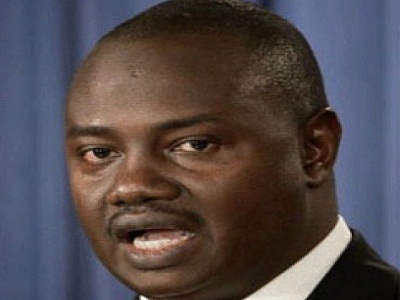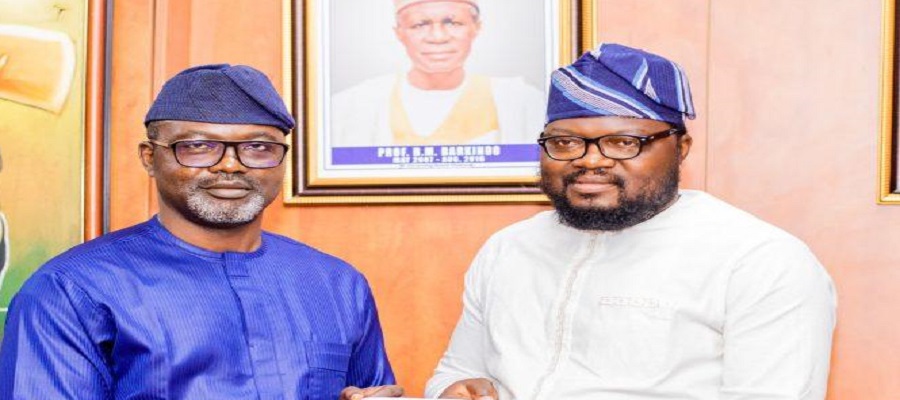News
US Fines Julius Berger N5.1Bn For Bribing Nigerian Officials

The United States Justice Department and the Federal Bureau of Investigation (FBI) have confirmed that construction giant Julius Berger’s foreign affiliate Bilfinger SE, has agreed to pay N5.1 billion ($32million) penalty for violating the Foreign Corrupt Practices Act.
Bilfinger SE, German-based international engineering and Services Company, was charged with bribing Nigerian government officials to obtain and retain contracts related to work for the Eastern Gas Gathering System (EGGS). A project valued at $387 million.
Mythili Raman, acting assistant attorney general of the Justice Department’s Criminal Division and Valerie Parlave, assistant director in Charge of the FBI’s Washington Field Office made the announcement.
As part of the agreed resolution, the department Tuesday filed a three-count criminal information in U.S. District Court for the Southern District of Texas charging Bilfinger with violating and conspiring to violate the FCPA’s anti-bribery provisions.
The department and Bilfinger agreed to resolve the charges by entering into a deferred prosecution agreement for a term of three years.
In addition to the monetary penalty, Bilfinger agreed to implement rigorous internal controls, continue cooperating fully with the department, and retain an independent corporate compliance monitor for at least 18 months.
The agreement acknowledges Bilfinger’s cooperation with the department and its remediation efforts.
According to court documents, from late 2003 through June 2005, Bilfinger conspired with Willbros Group Inc. and others to make corrupt payments totaling more than $6 million to Nigerian government officials to assist in obtaining and retaining contracts related to the EGGS project.
Bilfinger and Willbros formed a joint venture to bid on the EGGS project and inflated the price of the joint venture’s bid by three percent to cover the cost of paying bribes to Nigerian officials.
As part of the conspiracy, Bilfinger employees bribed Nigerian officials with cash that Bilfinger employees sent from Germany to Nigeria. At another point in the conspiracy, when Willbros employees encountered difficulty obtaining enough money to make their share of the bribe payments, Bilfinger loaned them $1 million, with the express purpose of paying bribes to the Nigerian officials.
On September 14, 2006, Jim Bob Brown, a former Willbros executive, pleaded guilty to one count of conspiracy to violate the FCPA in connection with his role in making corrupt payments to Nigerian government officials to obtain and retain the EGGS contract and in connection with his role in making corrupt payments in Ecuador. Brown was sentenced on January 28, 2010, to serve 12 months and one day in prison, to be followed by two years of supervised release, and was ordered to pay a $17,500 fine.
On November 5, 2007, Jason Steph, also a former Willbros executive, pleaded guilty to one count of conspiracy to violate the FCPA in connection with his role in making corrupt payments to Nigerian government officials to obtain and retain the EGGS contract.
Steph was sentenced on January 28, 2010, to serve 15 months in prison, to be followed by two years of supervised release, and was ordered to pay a $2,000 fine.
On May 14, 2008, Willbros Group Inc. and Willbros International Inc. entered into a deferred prosecution agreement and agreed to pay a $22 million criminal penalty in connection with the company’s payment of bribes to government officials in Nigeria and Ecuador.
On March 30, 2012, the government moved to dismiss the charges against Willbros on the grounds that Willbros had satisfied its obligations under the deferred prosecution agreement, and on April 2, 2012, the court granted the United States’ motion.
On December 19, 2008, Kenneth Tillery, a former Willbros executive, was charged with conspiring to make and making bribe payments to Nigerian and Ecuadoran officials in connection with the EGGS project and pipeline projects in Ecuador and conspiring to launder the bribe payments. Tillery remains a fugitive.
The charges against Tillery are merely accusations, and he is presumed innocent unless and until proven guilty.
On November 12, 2009, Paul Grayson Novak, a former Willbros consultant, pleaded guilty to one count of conspiracy to violate the FCPA and one substantive count of violating the FCPA in connection with his role in making corrupt payments to Nigerian government officials to obtain and retain the EGGS contract. Novak was sentenced on May 3, 2013, to serve 15 months in prison, to be followed by two years of supervised release, and was ordered to pay a $1 million fine.
The case was investigated by the FBI’s Washington Field Office and its team of special agents dedicated to the investigation of foreign bribery cases. The case is being prosecuted by Senior Trial Attorney Laura N. Perkins of the Criminal Division’s Fraud Section.
News
LG Launches “Radio Optimism” Campaign to Spread “Life’s Good” Through Music

LG Electronics has launched a new brand campaign, “Radio Optimism,” designed to help strengthen meaningful human connections and spread optimism through shared musical experiences.

This initiative aligns with LG’s brand promise, “Life’s Good,” and addresses the growing challenge of forming genuine relationships in a technology-driven world.
The Radio Optimism campaign seeks to counteract the disconnection often felt in an era dominated by superficial interactions, such as likes and comments on social media. By harnessing the power of music, LG aims to foster deeper bonds among individuals, promoting a more fulfilling life.
“As technology advances, meaningful human connections become increasingly vital to enrich our lives. LG continues its commitment to bringing optimism into customers’ daily lives, staying true to our enduring brand promise of ‘Life’s Good,’” said Kim Hyo-eun, head of LG’s Brand Management Division.
This campaign reinforces LG’s commitment to creating enriching experiences in digital spaces where today’s consumers spend significant time. Building on this mission, LG has continuously engaged with younger audiences through participatory campaigns that bring the Life’s Good philosophy to life.
Last year’s “Optimism your feed” campaign leveraged social algorithms to foster positivity on social media. This new initiative specifically seeks to address the paradoxical disconnection in an era of hyper-connectivity.
“One of the most reliable predictors of happiness is having deep and meaningful relationships,” said Jean M. Twenge, Professor of Psychology at San Diego State University. “Yet today, many people are spending more time online and less time connecting in person. Social media in particular tends to create shallow relationships rather than the deep connections people need.
“It’s common for people to have hundreds of followers but no one to talk to in real life if they need support. We need to build more meaningful connections with those around us. That might turn around the pronounced decline in happiness that’s occurred over the last decade.”
A new global study* from LG on social connection reveals that 68 percent of people find it harder to make real friends, and a third reported having one or fewer meaningful connections in the past month, with 8 percent experiencing none at all.
Inspired by traditional radio’s unique way of connecting people through music and storytelling, the Radio Optimism campaign transforms this concept into an interactive platform where participants can create and send personalized songs to their loved ones.
Users can easily create new songs using AI-powered tools, which are thoroughly trained on a curated music dataset. These tools interpret user prompts to produce unique musical pieces and generate matching album art, providing an engaging and personalized experience. Once generated, these songs can be sent to recipients to deepen their connection and made available for others to discover worldwide.
According to the survey, nearly 9 in 10 respondents believe that meaningful connections lead to a more optimistic outlook on life. By providing a platform for individuals to express their feelings, this campaign aims to foster deeper connections and help individuals enrich their lives while spreading optimism in their own ways.
The campaign website is available in English and Spanish, with plans to support additional languages in the coming months to enable broader participation. The official website can be found at RadioOptimism.lg.com.
News
Nigeria’s Electricity Output Climbs 10.92% in Q1 2025, Boosted by Thermal Plants

Nigeria’s electricity generation rose by 10.92% in the first quarter of 2025, driven by improved operational capacity and better availability of thermal and hydropower plants supplying the national grid.

This is according to the latest report from the Nigerian Electricity Regulatory Commission (NERC) for Q1 2025.
Total energy generated stood at 10,304.47 gigawatt-hours (GWh), up from 9,289.95 GWh recorded in the previous quarter. The increase highlights stronger performance across multiple power plants, supported by improved grid dispatch conditions.
NERC noted that average hourly generation on the grid also grew by 13.39%, rising to 4,770.59 megawatt-hours per hour (MWh/h) from 4,207.41 MWh/h in Q4 2024—an increase of 563.18 MWh/h.
“The hourly generation and the total generation increased by 13.39% and 10.92% respectively in Q1 2025 compared to Q4 2024. This rise is linked to an increase in the cumulative available generation capacity of grid-connected plants,” the report stated.
A total of 19 power plants boosted their output during the quarter, contributing significantly to the overall rise in generation.
Thermal power plants were the main drivers of growth. Out of the 23 thermal plants connected to the grid, 16 recorded higher average hourly output compared to the previous quarter.
Top contributors included Delta_1, which added 157.58 MWh/h, followed by Geregu_2 (71.95 MWh/h), Egbin_1 (68.20 MWh/h), and Afam_2 (68.03 MWh/h).
Hydropower plants also supported the growth, though at a smaller scale. The five grid-connected hydro stations posted a combined increase of 54.93 MWh/h, marking a 4% improvement. Zungeru_1 led with a 23.55% rise, while Shiroro_1 and Kainji_1 grew by 12.21% and 4.80% respectively.
This first-quarter improvement reflects ongoing efforts to stabilize power supply through better plant maintenance, enhanced grid management, and more consistent dispatch across regions.
However, challenges such as fuel supply to plants, equipment reliability, and high operating costs continue to limit the full potential of Nigeria’s power generation capacity.
News
DBI, Miva Open University Partner to Advance Digital Innovation, Education

Digital Bridge Institute (DBI) and Miva Open University, Abuja, have signed a Memorandum of Understanding (MoU) to jointly promote digital technology and academic excellence in computer science and innovation.

Mr. David Daser, president/CEO, DBI, and Professor Tayo Arulogun, vice chancellor, Miva Open University.
DBI, a Federal Government-owned ICT training institute with headquarters in Abuja and campuses across Nigeria’s six geo-political zones, hosted the signing ceremony at its headquarters.
The MoU marks a significant step in formalizing and strengthening the existing relationship between the two institutions.
Signing on behalf of their institutions were
Speaking during the event, Mr. Daser praised Professor Arulogun’s leadership and commitment to academic development, which he said made the partnership possible. He emphasized that unlike many MoUs that remain inactive, this collaboration is set to deliver tangible results.
“We value this partnership and are confident it will meaningfully contribute to Nigeria’s education sector. DBI is fully prepared to implement the agreement and drive an impact across our campuses in Enugu, Abuja, Kano, Lagos, Asaba, and Yola,” Daser said.
He added that the collaboration would strengthen DBI’s National Innovation Diploma (NID) program and other initiatives through shared resources and new opportunities.
Professor Arulogun, in his remarks, highlighted the need for greater collaboration among Nigerian universities, criticizing the prevalent “do-it-alone syndrome.”
“Many institutions prefer to operate in silos, but collaboration is key. Pooling resources and working together will enhance capacity and academic output,” he stated. “With this partnership, we are ready to hit the ground running from student exchange to joint innovation projects like hackathons.”
He noted that hackathons provide platforms for discovering hidden talents and fostering innovation, and Miva is eager to integrate such activities into its academic programs.
Mr. Emeka Nzeih, head of Learning and Development, DBI, outlined the partnership’s key focus areas: student internships, real-world project collaborations, joint research in fields like AI, robotics, and cybersecurity, and shared access to DBI’s ICT labs and equipment for Miva’s students and faculty.
According to Nzeih, the initiative aims to enhance practical learning, foster innovation, and build capacity through collaborative training, research, and mentorship.

 Telecom1 day ago
Telecom1 day agoMTN Nigeria Debuts Game-Changing CPaaS Platform at NextNow Forum

 Telecom2 days ago
Telecom2 days agoNCC Approves MTN, 9Mobile Roaming Collaboration Deal

 E-Financial1 day ago
E-Financial1 day agoNAICOM Issues New Licenses to SanlamAllianz Life, General Insurance

 E-Financial1 day ago
E-Financial1 day agoGTCO to Become First Nigerian Bank to List on London Stock Exchange

 E-Financial2 days ago
E-Financial2 days agoWorld Bank Approves Extra $65m for Nigeria’s SPESSE

 News1 day ago
News1 day agoAMCON Confirms ₦100Bn Sale of Ibadan DisCo Amid Legal Disputes

 E-Business1 day ago
E-Business1 day agoDomain of Deception as Attackers Deploy Spyware Under Guise of Legal Threats

 E-Financial2 days ago
E-Financial2 days agoEcobank Taps Google Cloud to Deepen Financial Inclusion




























